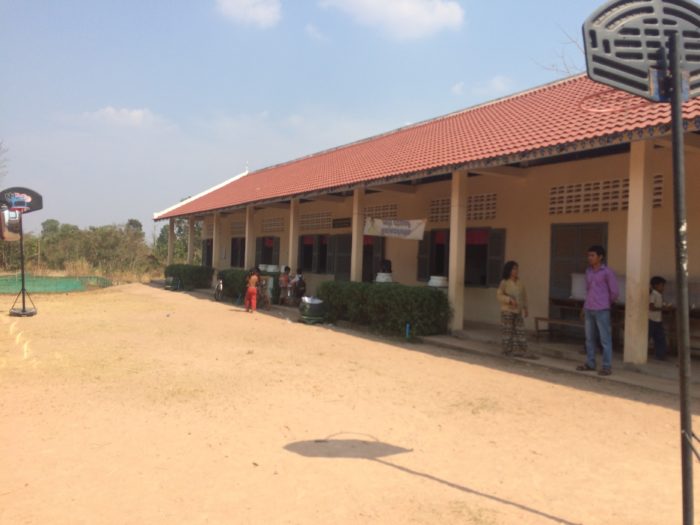Second Thoughts on Volunteer Service Abroad
By Rebecca Mazzu

Volunteering in some remote area of the world is the new cool thing to do. And why wouldn’t it be? You get pictures with cute children to post on Instagram, you get to speak about the “life changing experience” you had, and it makes for a great personal essay when applying to college. No wonder a rapidly growing number of companies now charge hundreds – if not thousands – of dollars for young people to travel across the world to “help” people in need.
In the second week of March of this past year, I was a “voluntourist” in a rural village outside of Siem Reap in Cambodia. My school was eager to have as many students involved in service trips, claiming it would “present students with many challenges and opportunities for personal growth”. That should have already warned me of the nature of the trip. For a service trip, there didn’t seem to be much emphasis on establishing a lasting impact on the community. It rather emphasised what the student could gain from the trip.
What is community service?
In theory, service is the act of doing something for someone. Community service assumes that these actions are altruistic in nature and will benefit a particular group, a community. Now, as my previous school so eloquently outlined it, these service trips seem to be far from actually helping a community, but instead helping the people going on the trip. I clearly remember asking fellow students why they had signed up for their trips. They said with no shame that they wanted to put it on their college application form. How can this be seen as altruistic? Service should not be about you benefitting from an experience, but about you making a lasting impact.
Contributing to communities – or harming them?
Another questionable aspect of the trip concerned the skills we were expected to have. As high school students, we were expected to teach English to a group of children who only spoke Khmer (the official language of Cambodia). I am not an English teacher. I don’t know the first thing about teaching English to children who live in an English speaking country, yet alone those who live in a country with a completely different culture. We had little to no knowledge of the culture of these children. Not to mention the fact that we only had three days to prepare. For the children, we were no doubt just the latest set of inexperienced teenagers playing teacher.
I clearly remember asking my supervisor “what is the point of teaching English to these children?” He told me that the trip was much more about providing care for these children and establishing a connection with them.
It’s important to note that these children were living with their parents and were provided with care at home. How would my establishing an emotional connection with children during three days and then never seeing them again be beneficial for the children in the long term? The answer is, it wouldn’t. At this point in my trip, I realised that far from contributing to the community, I was in fact harming it.
Voluntourism and sustainable development
Short service trips can be counter-productive to sustainable development, especially where children are concerned. They encourage a dependence on other people to help children where in truth a member of the local community could be employed to teach children a subject that is more useful for them.
I realize that if I had used the money I paid for the trip to donate to an organization that promotes sustainable development in the region, I would have made a much more positive impact on the community. This trip has made me understand the impact that my actions can have regardless of how good my intentions may be. Now I hope that I can spread this awareness so that people will think twice about their actions when volunteering and whether their actions are truly beneficial.
Note: A voluntourist is a traveler who works without pay, usually for a charity, in a country they are visiting. Despite the best intentions, volunteering – and particularly abroad – can sometimes cause unintended harm to the very people it is supposed to help. This can easily happen when volunteering in unfamiliar settings working with vulnerable communities where special qualifications are called for – like working with children in an orphanage, for example.
If you enjoyed Rebecca’s post, check out Mandip’s and Michelle’s stories about their experiences of being voluntourists. Also check out our posts on Changing the World Responsibly and Orphanage Voluntourism: The Truth.
If you want to help and you are unsure how, drop us a line at info@stahili.org